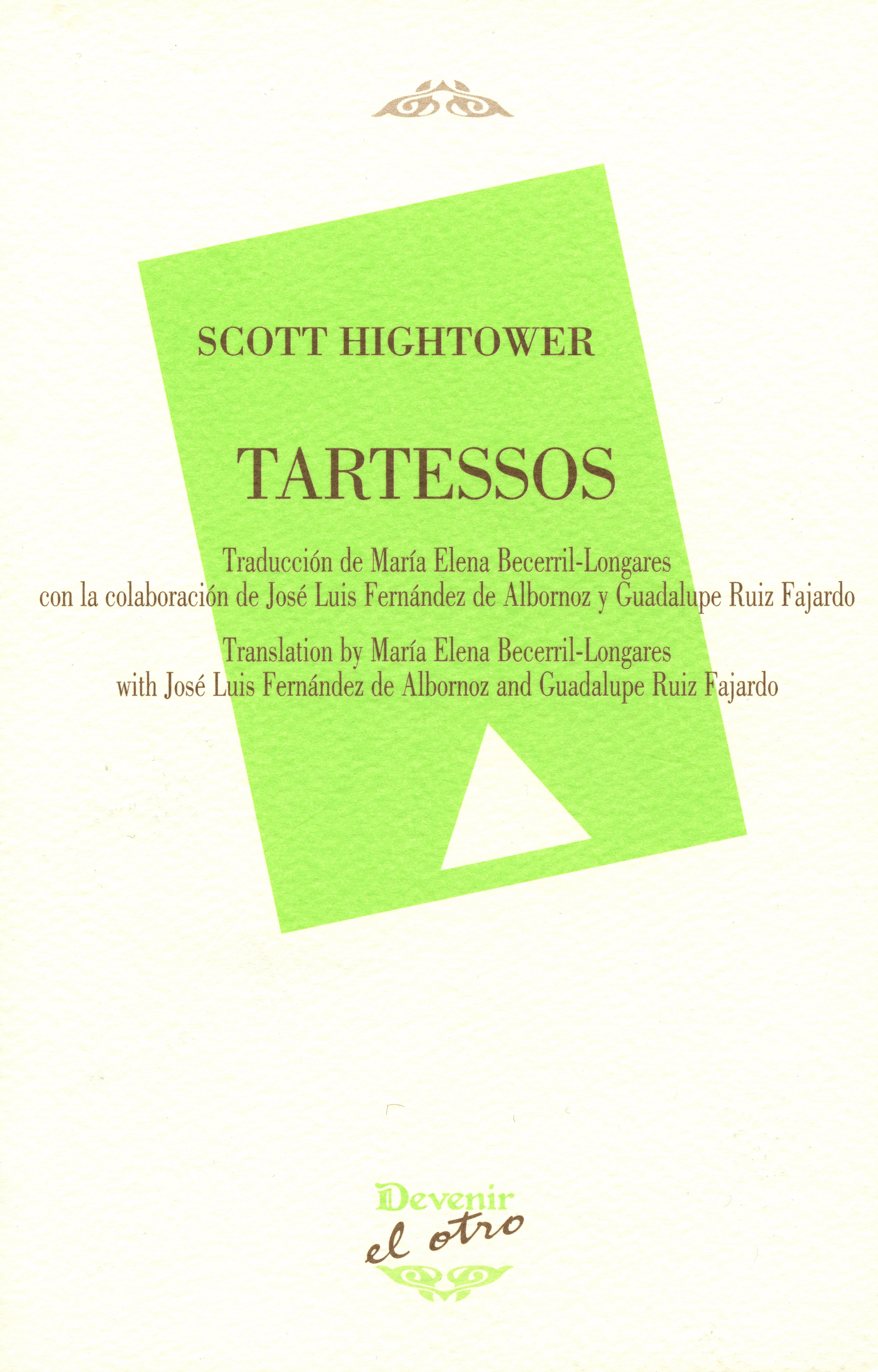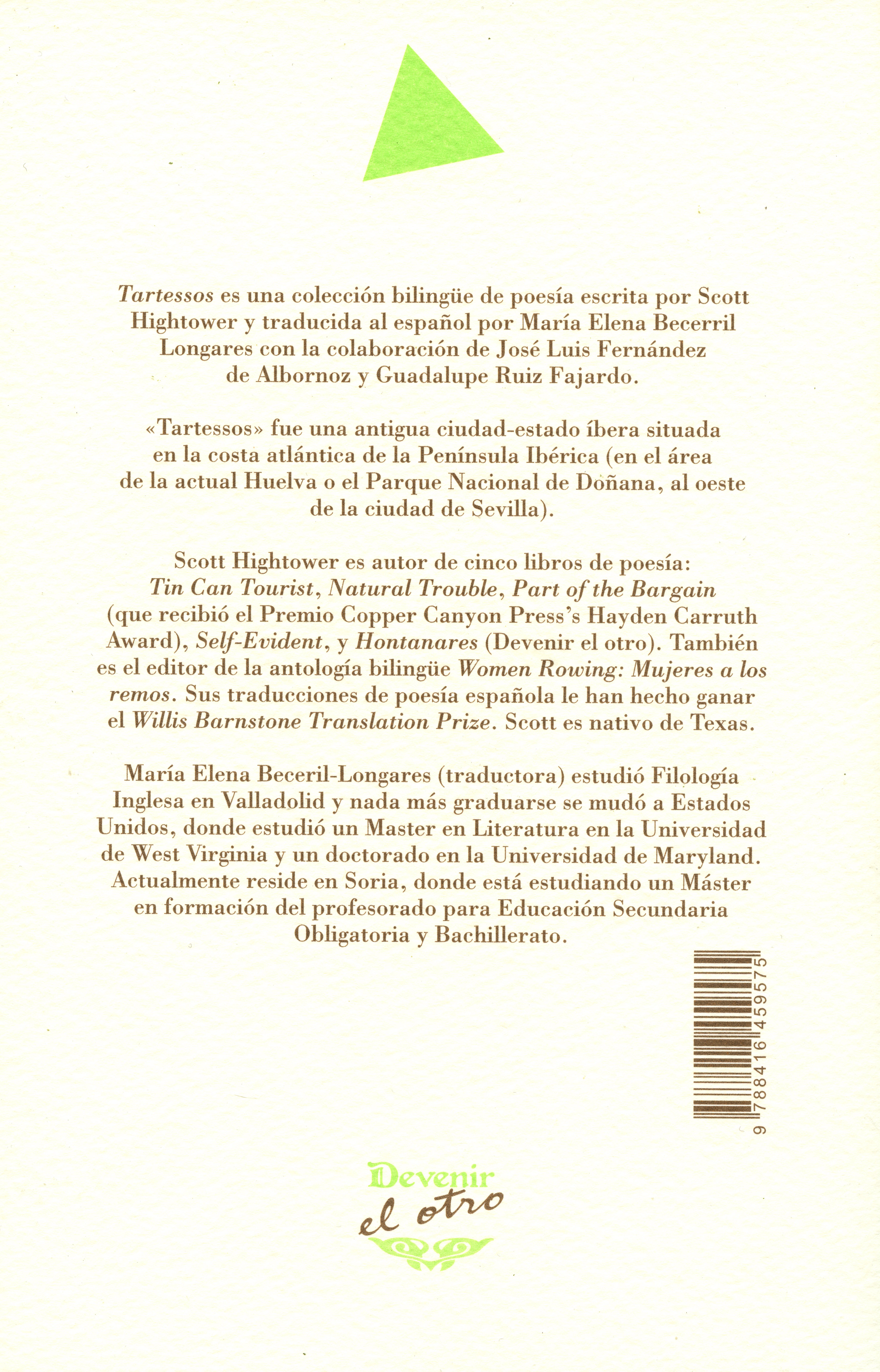…
Scott Hightower’s newest book of poems, Tartessos, takes place in western Spain, recording landscapes and cities, the history of politicians and artists, people the poet knows and knew through his partner, José Luis Fernández de Albornoz, whose roots there and in Puerto Rico connect him with a family that opposed Franco and were exiled and killed too. Tartessos is an ancient lost kingdom on the Atlantic side of Iberia, near Seville, and the following poem, which Scott Hightower also reads on the Vimeo below, is a good example of the lyrical scope of this book that allows one to be in the then and there as well as the here and now.
FRONTERA SAGRADA
One should visit the Valley of the Fallen,
not because there is any reconciliation
to be found there. But to remind one’s self
of the prisoners who lost their lives
quarrying the huge cavern, prisoners
whose names are not commemorated.
*
Eos: capricious; love; retribution
and cruelty memorialized in the sanctuary
of a grasshopper. Cursed to love
only a row of beautiful men.
To love someone as their youth fades,
as they fade, as they become
only a whisper. To be
commemorated on a vase or jug
while in a moment of mourning
or carrying away the beautiful
body of a maimed belovéd
in a mysterious field
just before dawn.
…Aurora:
first daughter; pagan goddess;
another Albornoz.
…
*
Land of fans, clay roof tiles
and dancers heels on wooden floors,
lace, castles, and churches. Legacy
of Unamuno; Machado, Lorca;
Jiménez, Bergamín.
*
In this fairytale, Maleficient is a dictator;
and, the people of the kingdom
are spelled to a state of wakefulness.
Some, ultimately, will choose—
rather than exile––occupation
with its congealing frustrations
and risks; occupation, where praise––
in being both pointed and modest––
is an insinuating protest.
“Sometimes, one cannot simply
walk away.” When Aurora chose
her final resting place, she turned
to the palm covered island
where five hundred years earlier
the Church––in an awkward,
if not leaky craft, tendered
to land its story of Adam
and Eve. Upon leaving the walled
garden and facing the expedience
of labor, hadn’t they taken with them
the volatile dream of Knowledge and Freedom?
FRONTERA SAGRADA
Todos deberíamos visitar el Valle de los Caídos,
no porque vayamos a encontrar algún
tipo de reconciliación allí, sino para recordarnos
la cantidad de prisioneros que perdieron sus vidas
excavando la inmensa caverna, prisioneros
cuyos nombres no se han conmemorado.
*
Eos: capricho; amor; retribución
y crueldad conmemorados en el santuario
de un saltamontes. Condenada a amar
solo una hilera de hombres bellos.
Amar a alguien mientras su juventud se desvanece,
mientras ellos se desvanecen, mientras se transforman
en solo un susurro. Ser
conmemorado en un jarrón o un florero
en un momento de luto,
o llevando el precioso cuerpo
de un amado mutilado en un misterioso
campo al inicio del alba.
…Aurora:
primogénita; diosa pagana;
otra Albornoz.
*
Tierra de abanicos, tejas de arcilla
y tacones de bailaoras en suelos de madera,
encaje, castillos e iglesias. Legado de
Unamuno, Machado, García Lorca,
Jiménez, Bergamín.
*
En este cuento de hadas, Maléfica
es un dictador; y las gentes del reino
han sido hechizadas a un estado de desvelo.
Algunos, finalmente, elegirán –
mejor que el exilio – la ocupación
con sus indigestas frustraciones
y riesgos; la ocupación, donde los halagos –
al ser a la vez discretos y mordaces –
son una insinuante protesta.
“A veces, uno no puede simplemente
irse.” Cuando Aurora escogió
su lugar de último descanso, se volvió
a la isla cubierta de palmeras
donde, quinientos años antes
la Iglesia, en una torpe,
si no dudosa gesta, ofreció
a la tierra su historia de Adán
y Eva. A la salida del vallado
jardín y ante la exigencia del
trabajo, ¿no se habían llevado con ellos
el volátil sueño de Sabiduría y Libertad?
Tartessos is Scott Hightower’s second book published in Spain by Devenir El Otro. The first, Hontanares, which I’ve already featured on this blog, is a Spanish word for a place with many natural fountains, perfect for a book that is often full of a remembered Texas childhood that is both clear and real. Tartessos and Hontanares have similar covers with a simple design of geometric shapes and colors, beige and a soft tender green that are a pleasure to look at and hold. Both books are bi-lingual in English and Spanish, translations by Natalia Carbajosa, Maria Elena Becerril-Longares, José Luis Fernández de Albornoz, and Guadalupe Ruiz Fajardo, another way these books are bountiful.
…
Tartessos is published by Devenir El Otro. You can check them out here:
http://www.devenir.es/catalogo/pdf/4
…
You can find other books and writing by Scott Rex Hightower here:
http://www.scotthightower.com/index.html
 Scott Rex Hightower getting ready for Madame Butterfly at the Santa Fe Opera with his partner and translator, José-Fernandez in Santa Fe, New Mexico
Scott Rex Hightower getting ready for Madame Butterfly at the Santa Fe Opera with his partner and translator, José-Fernandez in Santa Fe, New Mexico

